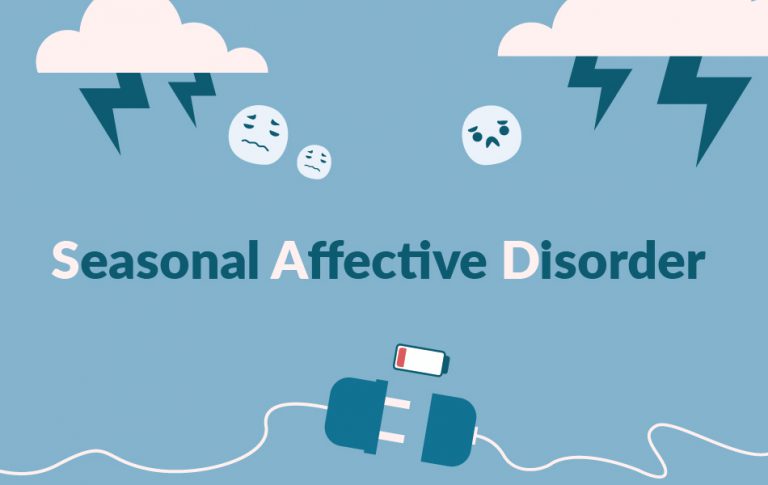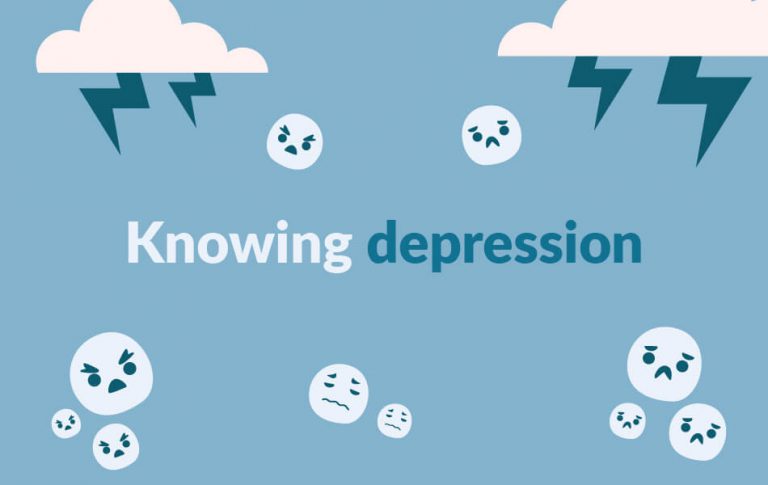Imagine being in pain or having some form of physical distress and every time you visit the doctor; they can find anything wrong.
You appear healthy, but the physical symptoms or problems you are experiencing are very real to you. This is close to how a person with somatic symptom disorder feels. Thoughts are focused and constant on the symptoms, the cause of which cannot be diagnosed by a doctor. On the other hand, a medical condition may already exist, but the response to symptoms are similar, producing a focus on symptoms that is not normal.
These focused thoughts can, in turn, lead to anxiety and ultimately affect your normal day to day living. This can then negatively affect family members and lead to problems at work.
Somatic Symptom Disorder can occur in children, teenagers as well as adults. Children might experience the disorder more intensely, as their understanding is limited and are unsure of what is happening to them. This type of disorder can also cause depression in adolescents. Teenage mental health is already fragile at this stage, so seeking medical help as soon as possible is important.
To diagnose the disorder, doctors need to do several tests. This helps to rule out any other causes before providing a proper diagnosis.
When to see a doctor
When dealing with physical symptoms, this should always be taken seriously as it could become serious if ignored. If you are uncertain as to why you are having certain symptoms, go and see a doctor. Your doctor can then help you discover what the problem is and if somatic symptom disorder is suspected, they can then refer you to a psychiatrist or mental health clinic.
Just because a doctor cannot diagnose a physical problem, doesn’t automatically mean you have somatic symptom disorder. The disorder is mainly identified by the way a person thinks. To what extent do you think about your physical symptoms? Is it overwhelming and taking over your every thought?
Do you find that your thoughts, emotions and behaviour are beginning to affect your day to day life? These are major red flags when it comes to diagnosing somatic symptom disorder.
Symptoms of Somatic Symptom Disorder
In the case of a person having an existing medical condition, the symptoms can be described as being worse than what they normally are. In other cases, the symptoms can manifest without there being any obvious medical problem. One of the main symptoms experienced by many of those suffering from the disorder is pain. The pain can be felt in many areas of the body including the chest, stomach, arms, legs and joints.
More symptoms can include:
- Headaches, dizziness or feelings of general weakness
- Digestive issues such as constipation, diarrhoea or abdominal pain
- Shortness of breath
- Symptoms can be mild to severe and can often include more than one
- Many also often experience anxiety and depression
As mentioned, the thoughts and feelings of those suffering from Somatic Symptom Disorder can be overwhelming.
Some behaviours and thoughts can include:
- Constantly thinking and worrying over the symptoms
- Taking a normal bodily sensation and seeing it as something more serious
- Thinking that the symptoms are serious, even after doctors cannot find anything wrong.
- The person may feel that the doctors haven’t done enough to discover the problem.
- Checking and re-checking your body for anything wrong
- Repeatedly visiting doctors without getting any results or satisfaction. Visits may even be making the problem worse, due to continuing frustration, stress and worry.
- Exhibiting severe symptoms for a medical problem that isn’t normally that bad.
If a medical practitioner suspects a somatic symptom disorder, they would usually be looking at how a person reacts to the symptoms and not really at the physical symptoms. The purpose of this is to find out how much the symptoms are affecting a person’s daily life and if steps need to be taken further for treatment.
Somatic symptom disorder can also fall under Adolescent mental health disorders. Adolescents may end up seeing several different medical practitioners, having many different tests done. In the end, oftentimes, there are no conclusive results. Just remember, the symptoms remain very real to the person suffering from them. This can be very distressing and may lead to significant effects, which can lead to difficulties arising in the person’s day to day life.

Causes and Risk Factors
When it comes to the causes of somatic symptom disorder, it is very difficult to pinpoint exactly. There are many causes to be considered. There are biological factors, such as hormone levels, gender, nutrition as well as any genetic influences. When considering gender, it has been found that women seem to be affected more than men.
The family history can also play a role, as mentioned it could be linked to a genetic factor. The family environment is something else to take into consideration and could play a part in the development of the disorder. Having a negative outlook on life can influence the way you look at the world around you. A negative outlook on your health and how you view illness and symptoms can be a major contributing factor.
Some people may find it difficult to process emotions or find stressful situations difficult to handle. Physical symptoms can manifest themselves and become a focal point, instead of dealing with managing the stress and emotional issues. Another cause could be associated with learned behaviour. What benefits or attention does an illness produce? If you’re sick you can’t do certain things, or you get a lot more attention because of your illness. For example, avoiding regular exercise could be seen as a benefit, but ultimately just leads to other health issues.
There are also several risk factors associated with somatic symptom disorder.
These risk factors include some of the following:
- Something that could cause a problem, if a person is suffering from a current health condition. Also, if a person is recovering from a health issue.
- There is a risk for those who suffer from anxiety or depression
- Those that have a family history of a certain disease
- People who have experienced trauma or are under a lot of stress
- Those who have suffered some kind of childhood trauma
- In some cases, there is a risk for those in lower socio-economic situations or those who haven’t had access to proper education.
Complications that may occur
As with many health issues and problems, there could be complications that develop. Circumstances and other issues can be contributing factors associated with the development of somatic symptom disorder. A person who has general poor health is more likely to develop other problems, including somatic disorder. This can also include those who struggle with physical disabilities and feel frustrated with their bodies.
Some other complications that may be associated with somatic symptom disorder include:
- Stressful situations, such as unemployment or difficult working environments
- If there are major financial problems, which is made worse by frequent doctor’s visits
- There might be complications and negative reactions to medications or treatments provided
- A person who has an existing mental health disorder, this can include depression, anxiety as well as other personality disorders.
- There is an increased chance of suicide

Treatment of Somatic Symptom Disorder
Somatic symptom disorder is very difficult to diagnose. When you pay a visit to your doctor, they will generally perform a physical exam and do some tests to discover what the problem is. After all, this is done and the tests show no problems, the doctor may refer you to a mental health practitioner.
Treatment usually involves several different approaches; each treatment plan created specifically to meet the needs of each individual. Validation of symptoms is important to be able to move forward. Some options may include the use of medications, for things like anxiety or depression treatment. More helpful treatments can also involve cognitive behavioural therapy amongst other effective mindfulness therapy techniques. Somatic symptom disorder is generally viewed as a chronic condition, but those affected can learn to manage their symptoms and recover to live a healthy life.
Prevention
In most cases, there is very little anybody can do in order to prevent somatic symptom disorder, but there are a few things you can do to minimize its effects. If you are a person who suffers from depression or anxiety, it is important to seek help. Don’t let the problem grow into something you cannot manage.
Since many health issues can be caused by stress, it is important to know when you are beginning to feel stressed. Take note on how your body reacts and implement strategies which help you to reduce or even eliminate problems. Try relaxation techniques, such as breathing exercises or yoga. Exercise can also help, chooses whatever you enjoy doing whether it is running, going to the gym or hiking.
Sometimes, many people who are on a treatment plan often stop doing what is recommended for them. This can only lead to a person falling back into old habits and may even make the problem worse. So, even if it is difficult, make sure to follow through with treatment.

Caring for Loved ones with somatic symptom disorder
When you have been suffering from debilitating symptoms, only to be told that there is no serious illness causing the problems, may be difficult to accept. This is where encouragement from loved ones is important. This is a critical time when you may have to consider seeking out a mental health practitioner to manage your emotion and behaviours.
Family can also help when it comes to keeping track of the treatment plan, helping to record relevant information. This information can then be given to the health provider. In this way, the family can be a great help and plays an important role in communication with those providing health treatment.
Those that take care of their loved ones with a health condition, be it mental or physical, also take the strain. This can cause a certain amount of stress on relationships. So, it is important, as a caregiver to look after yourself as well. Seek out professional help if needed or find a support group that can offer help.
You may be searching for a mental health clinic that offers anxiety treatment or treatment for teenage mental health disorders. The ZwavelStream Clinic offers patient-centred programmes in mental health care and we offer a way of discovering a renewed sense of wellness.







